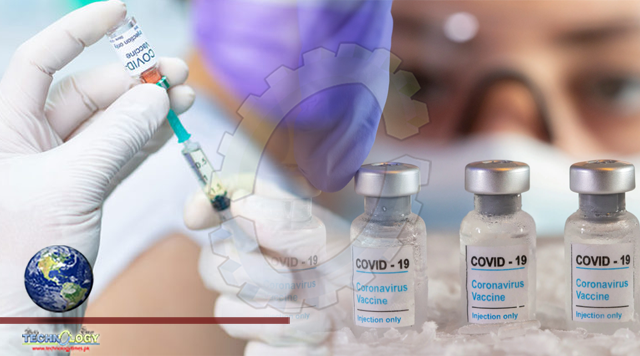With all the misinformation readily available on the internet, I don’t blame them. But to shut them up for good, here are some myths COVID-19 vaccine debunked

5 Myths About The COVID-19 Vaccine Debunked : As we get ready to welcome the new year, the world has also begun rolling out COVID-19 vaccines.
It’s amazing what human ingenuity is capable of when it comes to the urgent need to protect ourselves from a deadly virus like COVID-19.
But despite all the money and research being poured into COVID-19 vaccine development, I’m pretty sure you’ve got a few skeptics in your life who are still worried about it.
With all the misinformation readily available on the internet, I don’t blame them. But to shut them up for good, here are some COVID-19 vaccine debunked.
1. The vaccine was developed so quickly. Too quickly. Will it even work?
Fact: Despite the speed at which COVID-19 vaccines were developed in 2020, they’ve been proven to be effective in clinical trials.
People may question why it took us less than a year to get a COVID-19 vaccine, when we still don’t have anything to fight HIV and cancer. Making this comparison is actually unfair, and it’s pretty misleading too.
As Reuters points out, finding an HIV/AIDS vaccine is an incredibly challenging endeavor.
The virus “mutates rapidly and has unique ways of evading the immune system,” says the U.S. National Institute of Allergy and Infectious Diseases (NIAID). This means that HIV/AIDS constantly evolves. And it evolves quickly, rendering vaccine research futile for the most part. We just can’t keep up with the mutations.
As for cancer, let’s make one thing very clear: Unlike HIV/AIDS and COVID-19, cancer is not typically caused by viruses or bacteria. In fact, there’s no one single cause of cancer. It can be genetic, environmental, or just a characteristic of the individual.
However, there are vaccines that can help reduce one’s risk of getting cancer, like the HPV vaccine for cervical cancer and hepatitis B vaccine for liver cancer.
2. The COVID-19 vaccine has some severe side effects.
Fact: For the most part, the side effects from COVID-19 vaccines aren’t life-threatening, nor do they cause any form of discomfort at all. However, for those with a history of allergies, like anaphylaxis, experts say you shouldn’t take the vaccine at all.
This has already been made crystal clear.
But of course, you might feel a little fatigued after getting the vaccine. Additionally, you might also experience muscle aches, headaches, and a fever. However, this is the case with ALL vaccines in the first place. It’s nothing new, and definitely not something to be worried about.
In fact, it’s a sign that the vaccine is working as intended because your immune system is responding!
3. The COVID-19 vaccine will give people COVID-19.
Fact: COVID-19 vaccines don’t contain the live SARS-CoV-2 virus that causes COVID-19.
There are several vaccines either in late-stage development or already in public rollout, and none of them contain SARS-CoV-2. The point of the vaccine is to ‘teach’ your immune system to recognize and fight viruses that cause COVID-19.
As mentioned in the previous point, this can result with fever, but don’t mistake it for COVID-19. It’s just your immune system at work. It’s your body building up immunity to the virus, according to the U.S. Centers for Disease Control and Prevention (CDC).
However, the development of immunity takes several weeks, so if you do come into contact with someone who has tested positive for COVID-19 during that time, you can still get infected.
But if it offers more reassurance, taking the vaccine itself won’t cause you to test positive for COVID-19. If there are positives, you’ll likely get one in an antibody test. This is good!
4. Once people get vaccinated, they no longer need to wear face masks when out and about.
Fact: This can only be a general mindset once enough people are immune to the virus. As it currently stands, you still need to observe all COVID-19 safety measures, even after you’ve received the COVID-19 vaccine.
This includes the wearing of face masks, social distancing, and not gathering in large groups. And of course, personal hygiene remains just as important as it ever was.
Public health guidance will be updated as more and more people become immune to the virus. So all you can do now is be patient, it’s worth the wait.
5. The COVID-19 vaccine will effectively end the pandemic.
Fact: No struggle is ever ended that easily. While the COVID-19 vaccines will definitely help minimize the patient load in hospitals, and reduce overall COVID-19-related deaths, it sure won’t end the pandemic that has gripped the world throughout the majority of 2020.
There are a few things to keep in mind. The first of which is the fact that not everyone will be vaccinated at the same time. To add to this, not everyone will even have equal access to the vaccine.
It has already been well established in most countries that frontliners and the elderly will be the first to receive it. But the vaccine recipients that follow will not all be vaccinated together. It’s a slow process.
And most important, the vaccine doesn’t display 100 percent efficacy. This means you’d still have to abide by existing COVID-19 safety measures until enough people are inoculated.
What other COVID-19 vaccine myths have you come across?
Originally published at Mashable se Asia